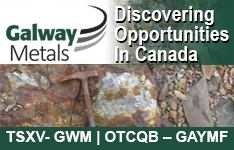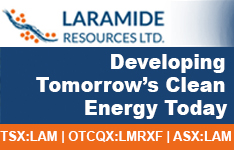Merck & Co. Inc. (MRK:NYSE) announced results from two pivotal Phase 3 clinical trials evaluating enlicitide, an investigational oral PCSK9 inhibitor (PCSK9i), for cholesterol reduction in patients at high cardiovascular risk. Presented at the 2025 American Heart Association (AHA) Scientific Sessions, findings from the CORALreef Lipids and CORALreef HeFH studies demonstrated statistically significant and sustained reductions in low-density lipoprotein cholesterol (LDL-C), a known contributor to atherosclerotic cardiovascular disease (ASCVD).
Enlicitide is designed as a once-daily oral treatment that mimics the efficacy of existing injectable monoclonal antibodies targeting the PCSK9 protein, which plays a key role in regulating cholesterol levels in the bloodstream. According to Merck, enlicitide reduced LDL-C by 59.7% at Week 24 in the CORALreef Lipids study and 59.4% in the CORALreef HeFH trial. Both trials also reported improvements in related biomarkers, including apolipoprotein B (ApoB), non-high-density lipoprotein cholesterol (non-HDL-C), and lipoprotein(a) [Lp(a)].
The CORALreef Lipids study enrolled 2,912 participants who received moderate- or high-intensity statins or statin alternatives. In addition to the primary endpoint of LDL-C reduction, the trial demonstrated high adherence to the daily oral regimen and a safety profile comparable to that of the placebo. The CORALreef HeFH study focused on 303 adults with heterozygous familial hypercholesterolemia (HeFH), a genetic condition associated with elevated LDL-C levels. Merck reported that more than two-thirds of participants in both studies achieved rigorous LDL-C targets, including both a ≥50% reduction and LDL-C below 55 mg/dL.
Across both studies, the incidence of adverse events (AEs), serious AEs, and discontinuations due to AEs was similar between enlicitide and placebo groups. In the CORALreef Lipids trial, 3.1% of participants discontinued enlicitide due to AEs, compared to 4.1% in the placebo group.
"Data from CORALreef HeFH demonstrate the potential for enlicitide to help address critical unmet needs for adults with heterozygous familial hypercholesterolemia are at risk for premature atherosclerotic cardiovascular events, yet a significant portion of patients do not achieve guideline-recommended LDL-C level despite available lipid-lowering therapies," explained Dr. Christie M. Ballantyne, a lead author of the CORALreef HeFH study and Professor of Medicine at Baylor College of Medicine, in the press release. "As the potentially first approved oral PCSK9 inhibitor, enlicitide was designed to provide efficacy similar to anti-PCSK9 monoclonal antibodies and may be an important new treatment option to help adults with heterozygous familial hypercholesterolemia reach their guideline-recommended LDL-C goal. Lowering elevated LDL-C levels helps reduce the risk of atherosclerotic cardiovascular disease."
Merck intends to file for regulatory approval in early 2026. If approved, enlicitide could become the first FDA-approved oral PCSK9 inhibitor.
A Growing Focus on Cholesterol Management and Cardiovascular Risk
According to a June analysis from GlobalData, the cholesterol testing industry had been expanding steadily as part of the broader in vitro diagnostics sector. The report explained that cholesterol tests "identify elevated levels of cholesterol present in the blood, assessing the risks of cardiovascular disease, including heart attack or stroke."
GlobalData noted that the prevalence of hypertension remained one of the largest drivers of demand and that improved access to testing and greater awareness of cardiovascular risk had contributed to growth. The study provided "annualized total cholesterol test revenue by segment and market outlooks from 2015–2036," along with regional and country-specific insights, regulatory information, and competitive dynamics. The analysis underscored the market's role in supporting both clinical decision-making and preventive health strategies by enabling earlier identification of lipid abnormalities.
A report from the U.S. Centers for Disease Control and Prevention (CDC) on October 24 stated that high cholesterol continued to affect millions of adults across the country. The agency reported that "between 2017 and 2020, 10% of adults age 20 or older had total cholesterol levels above 240 mg/dL," while "about 17% had high-density lipoprotein (HDL) cholesterol levels below 40 mg/dL." It further noted that about "86 million U.S. adults age 20 or older have total cholesterol levels above 200 mg/dL," and nearly 25 million had levels considered severely elevated at more than 240 mg/dL. The CDC added that "most healthy adults should have their cholesterol checked every 4 to 6 years," though those with heart disease, diabetes, or a family history of elevated cholesterol require more frequent screening.
Johns Hopkins Medicine reported that roughly 71 million Americans were living with high cholesterol and highlighted the importance of managing low-density lipoprotein (LDL) cholesterol, often referred to as "bad" cholesterol. The institution stated that "LDL cholesterol levels are a major factor in risk for cardiovascular disease," and people with known heart disease whose LDL levels are measured 70 mg/dL or higher generally require medication to help reduce them. The report also referenced a "new class of drugs" known as PCSK9 inhibitors that "can dramatically lower your LDL cholesterol" and "cut LDL levels by 50% or more." It described these treatments as a significant advancement in addressing inherited and treatment-resistant forms of high cholesterol.
Analysts Cite Strong Pipeline and Steady Growth for Merck
According to TipRanks, analysts maintained an overall favorable stance on Merck & Co., Inc., assigning a "Moderate Buy" consensus rating based on 12 ratings issued over the prior three months. The platform reported that "the average price target was US$95.35," representing a 10.51% upside from the prior trading price of US$86.28. The highest price target among analysts stood at US$120.00, while the lowest was US$82.00.
According to TipTanks, several analysts reiterated positive views, including Daina Graybosch of Leerink Partners, who reaffirmed a Buy rating with a US$107 target on October 13, and Chris Schott of J.P. Morgan, who maintained a Buy rating with a US$120 target on September 16. Tim Anderson of Bank of America Securities also reiterated a Buy rating on October 31 with a US$98 target, emphasizing continued growth potential across the company's core therapeutic areas
A report issued by Freedom Broker analyst Ilya Zubkov on November 10 provided a detailed evaluation of Merck's recent performance and outlook. The firm noted that quarterly revenue reached US$17.3 billion, surpassing consensus estimates of US$17.0 billion and marking a 4% year-over-year increase. The report added that "the main growth drivers were the oncology portfolio led by Keytruda, increasing sales of new launches, and the steady performance of Animal Health." Freedom Broker highlighted that operating margin improved as the adjusted gross margin rose to 81.9% from 80.5% a year earlier, aided by a favorable product mix and normalization of expenses. The analysts also underscored the company's "multi-year cost optimization program projected to save US$3 billion by 2027," as well as a US$10 billion acquisition designed to enhance its cardiometabolic portfolio.
Freedom Broker reaffirmed its Hold rating with a target price of US$90.00, citing the company's strong oncology performance and expanding pipeline as supportive factors offsetting temporary vaccine-related headwinds. The firm concluded that "the outlook for new products remains favorable, supported by label expansion and broader market rollout," while ongoing investments in research and acquisitions positioned Merck for continued revenue growth in the medium term.
Oral Delivery Could Expand Access to Potent Cholesterol-Lowering Therapy
Enlicitide represents a novel approach to lipid management by combining the biological mechanism of antibody-based PCSK9 inhibitors with the convenience of oral dosing. According to Merck's AHA 2025 investor presentation, the company aims to make enlicitide widely accessible by simplifying delivery and lowering manufacturing and distribution costs compared to injectable therapies.
The ongoing CORALreef Outcomes trial, which has completed enrollment with over 14,500 participants, is expected to evaluate further enlicitide's impact on major adverse cardiovascular events (MACE). Additional studies are also underway, including pediatric evaluations and fixed-dose combination trials.
With LDL-C control remaining a key challenge in cardiovascular risk reduction — particularly for patients with HeFH or those not reaching guideline targets on statin therapy — Merck believes it is positioning enlicitide as a potential foundation for future lipid-lowering regimens. The company highlighted enlicitide's role in addressing the global cardiovascular epidemic, citing that only 27.4% of U.S. patients with ASCVD currently meet LDL-C guidelines despite treatment.
Ownership and Share Structure 1
Institutions own 81.26% of Merck and Co. Of them, The Vanguard Group holds the most with 10.11%, followed by BlackRock Institutional Trust at 5.75%, and State Street Investment Management with 4.77%. Management and Insiders own 0.05%, strategic entities hold 0.03%. The rest is retail.
As of November 12, 2025, Merck & Co., Inc. had approximately 2.50 billion shares outstanding. Its market capitalization at that time was about US$225.7 billion.
| Want to be the first to know about interesting Biotechnology / Pharmaceuticals investment ideas? Sign up to receive the FREE Streetwise Reports' newsletter. | Subscribe |
Important Disclosures:
- James Guttman wrote this article for Streetwise Reports LLC and provides services to Streetwise Reports as an employee.
- This article does not constitute investment advice and is not a solicitation for any investment. Streetwise Reports does not render general or specific investment advice and the information on Streetwise Reports should not be considered a recommendation to buy or sell any security. Each reader is encouraged to consult with his or her personal financial adviser and perform their own comprehensive investment research. By opening this page, each reader accepts and agrees to Streetwise Reports' terms of use and full legal disclaimer. Streetwise Reports does not endorse or recommend the business, products, services or securities of any company.
- This article does not constitute medical advice. Officers, employees and contributors to Streetwise Reports are not licensed medical professionals. Readers should always contact their healthcare professionals for medical advice.
For additional disclosures, please click here.













































